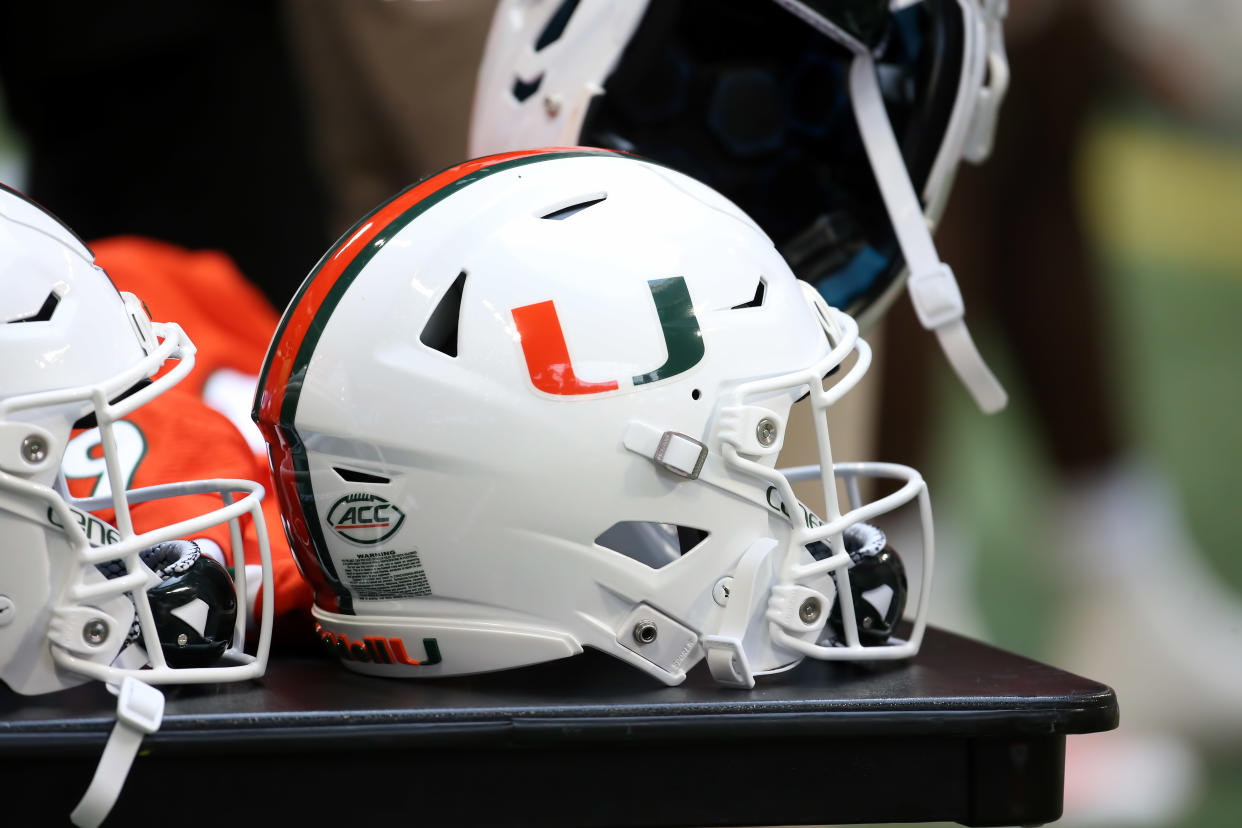NCAA looking into Miami NIL deals, meets with booster John Ruiz
The name John Ruiz has become fairly well-known in the college sports world in recent months thanks to the name, image and likeness deals his companies have been giving out to college athletes — mainly at the University of Miami.
And now the NCAA is beginning to ask questions.
Ruiz confirmed to Sports Illustratedand On3 that he spoke with NCAA enforcement staff last week. According to SI, NCAA staff members “spent at least two days in Miami prying into NIL deals” while interviewing Ruiz and others.
Ruiz, a Hurricanes booster whose net worth is in the billions, has been very open on social media about the multitude of NIL deals he has struck with college athletes through his various business ventures. Most notably, he posted on Twitter about a two-year, $800,000 deal with Nijel Pack, who transferred from Kansas State to Miami for men’s basketball.
***BREAKING NEWS*** @LifeWallet is proud to announce @NijelPack24 has officially committed to UM as a basketball player. The biggest LifeWallet deal to date, two years $800,000.00 total at $400,000.00 per year plus a car. Congratulations!!! @johnnyruiz4@alex7ruiz@ddiazon7pic.twitter.com/SzKHag8qnG
— John H. Ruiz, Attorney at Law (@JohnHRuiz) April 23, 2022
When speaking with SI, Ruiz described his communication with the NCAA as an “interview,” not an “investigation.” Ruiz said the NCAA is trying to gain a better understanding of the current NIL environment.
“A lot of NCAA bylaws are hard to reconcile with the ability and right to enter into NIL deals,” Ruiz said. “I think that the NCAA is starting to get a handle on the fact that it’s not capable of navigating within the [state] NIL laws and their own bylaws. There is an internal conflict. I felt the people from the NCAA were extremely pleasant. They are tasked with the job of making sure they gather enough information and create a functioning standard for everybody. There has to be better regulation.”
Ruiz told SI that he has signed 115 athletes (most of whom attend Miami) and has an overall payroll of “about $7 million.”

NCAA issued new NIL ‘guidance’ in May
Last month, the NCAA issued new guidance to schools “regarding the intersection between recruiting activities and the name, image and likeness environment.” That guidance specifically addressed “collectives” established by booster groups at schools across the country that are designed to pool funds together and attract top recruits.
Those groups have been included in the definition of a booster by the NCAA as it aims to stick with its long-standing rules against “pay-for-play.” Ruiz is the first booster to publicly acknowledge having met with NCAA enforcement since that updated guidance was provided.
“The guidance defines a booster as any third-party entity that promotes an athletics program, assists with recruiting or assists with providing benefits to recruits, enrolled student-athletes or their family members,” the NCAA said. “The definition could include ‘collectives’ set up to funnel name, image and likeness deals to prospective student-athletes or enrolled student-athletes who might be considering transferring. NCAA recruiting rules preclude boosters from recruiting and/or providing benefits to prospective student-athletes.”
At that time, the NCAA Division I Board of Directors directed enforcement staff to look into NIL deals that are “clearly contrary” to the NCAA’s interim NIL policy that was set on July 1, 2021.
That policy suspended NCAA rules barring college athletes from earning income via the use of their NIL. The NCAA held on to those rules as long as it could until states around the country began enacting laws — laws that supersede NCAA rules — to allow college athletes to pursue NIL deals.
It’s been nearly a year since and there have been hundreds of deals struck by college athletes, including some that are reportedly as lucrative as six or seven figures. While those are outliers, the NCAA is attempting to sniff out “the most severe violations of recruiting rules or payment for athletics performance.”
Whether the NCAA can actually enforce rules relative to NIL deals is subject to debate given the NCAA’s unanimous 9-0 loss in the Supreme Court (in the Alston case) and the fact that individual state laws supersede NCAA rules.
